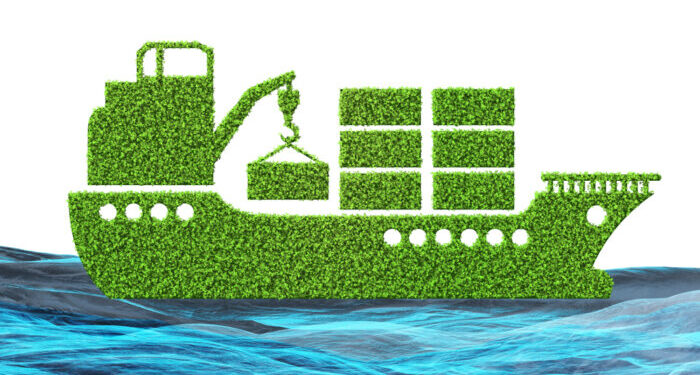As the maritime industry intensifies its efforts to reduce environmental impact, 2025 has witnessed significant strides in sustainability through technological innovations, regulatory frameworks, and collaborative initiatives.
⚓ Technological Innovations Leading the Way
-
Launch of the World’s Largest Electric Ship: Incat, an Australian shipbuilder, unveiled the 130-meter-long China Zorrilla, the world’s largest battery-electric ship. Designed for South American operator Buquebus, this vessel can transport 2,100 passengers and 225 vehicles across the River Plate. Powered by over 250 tonnes of batteries with a capacity exceeding 40 megawatt-hours, it marks a significant advancement in sustainable maritime transportation .heraldsun+1The Guardian+1
-
Oceanbird’s Wind-Powered Cargo Vessels: Wallenius Marine’s Oceanbird project is developing wind-powered cargo ships equipped with 40-meter-high wingsails, aiming to reduce emissions by up to 90%. The first vessel, Orcelle Wind, is expected to set sail in 2026, representing a transformative approach to sustainable shipping .Wikipedia
🏛️ Regulatory Frameworks Driving Sustainability
-
FuelEU Maritime Regulation: Effective from January 1, 2025, this EU regulation mandates ships over 5,000 gross tonnage to monitor and report greenhouse gas intensity, targeting a 2% reduction in 2025 and aiming for an 80% reduction by 2050. Non-compliance could result in penalties, emphasizing the EU’s commitment to decarbonizing maritime transport Mobility and Transport.
-
IMO Net-Zero Framework: The International Maritime Organization (IMO) is set to adopt a global carbon pricing mechanism by October 2025, applying a $100 per tonne CO₂ equivalent levy starting in 2028. This framework aims to achieve net-zero emissions from global shipping by 2050, marking a significant step towards international maritime sustainability Wikipedia.
🌱 Collaborative Initiatives and Sustainable Fuel Adoption
-
Zero Emission Maritime Buyers Alliance (ZEMBA): A consortium including Amazon, Patagonia, and Tchibo has partnered with Hapag-Lloyd to operate ships powered by biomethane, derived from organic waste. This initiative is projected to prevent 82,000 tonnes of CO₂ emissions over two years, demonstrating the impact of collaborative efforts in promoting cleaner fuels Financial Times.
-
Expansion of Biofuel Availability: Marine fuel trading company KPI OceanConnect plans to increase its biofuel offerings to 120 ports, up from 70, in response to the FuelEU regulations. Biofuels can reduce emissions by up to 95%, presenting a viable alternative to traditional marine fuels .Reuters
🌊 Embracing the 2025 World Maritime Day Theme
The International Maritime Organization’s theme for World Maritime Day 2025, “Our Ocean, Our Obligation, Our Opportunity,” underscores the industry’s responsibility and potential in fostering a sustainable future. This theme reflects the collective commitment to protecting marine ecosystems while advancing economic and technological progress .International Maritime Organization
As the maritime sector navigates these developments, stakeholders are encouraged to adopt innovative technologies, comply with evolving regulations, and engage in collaborative initiatives to drive sustainability.









